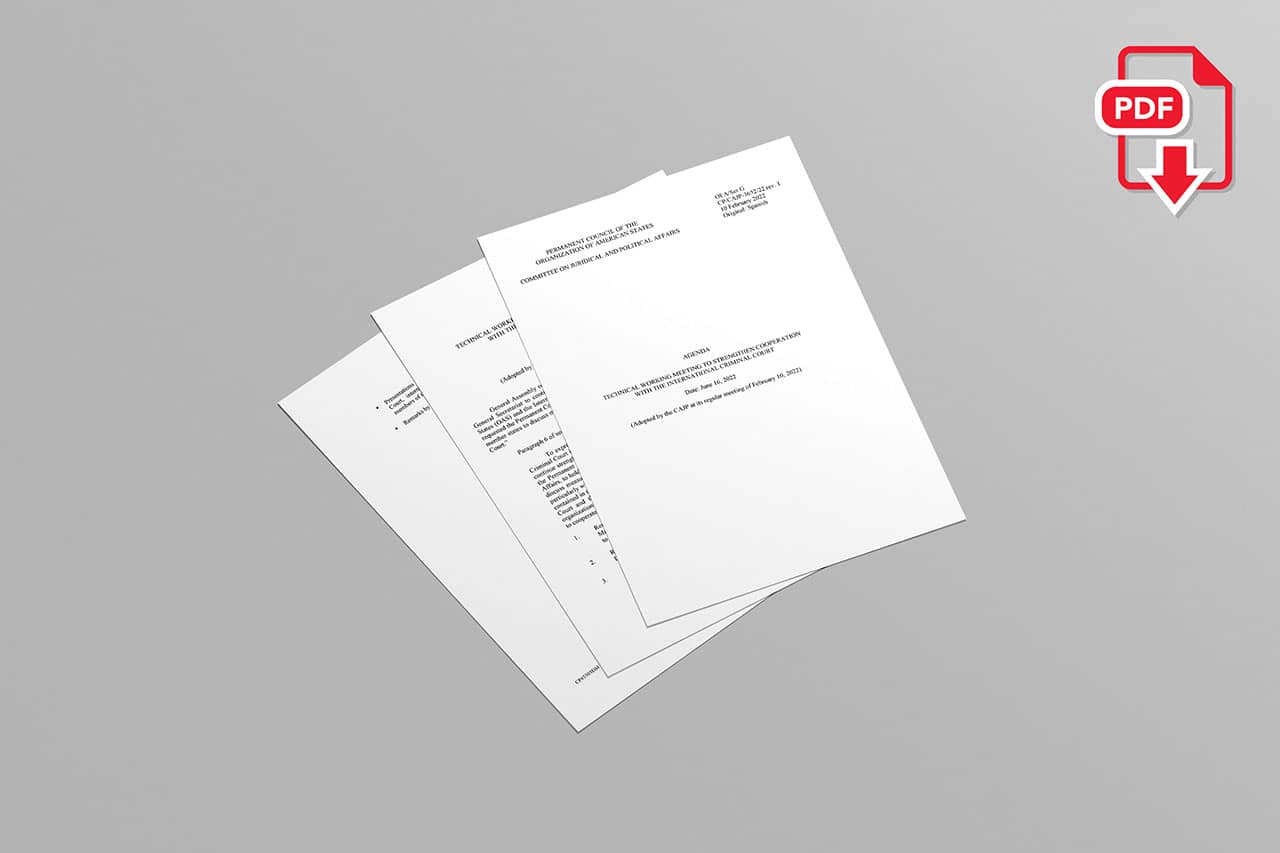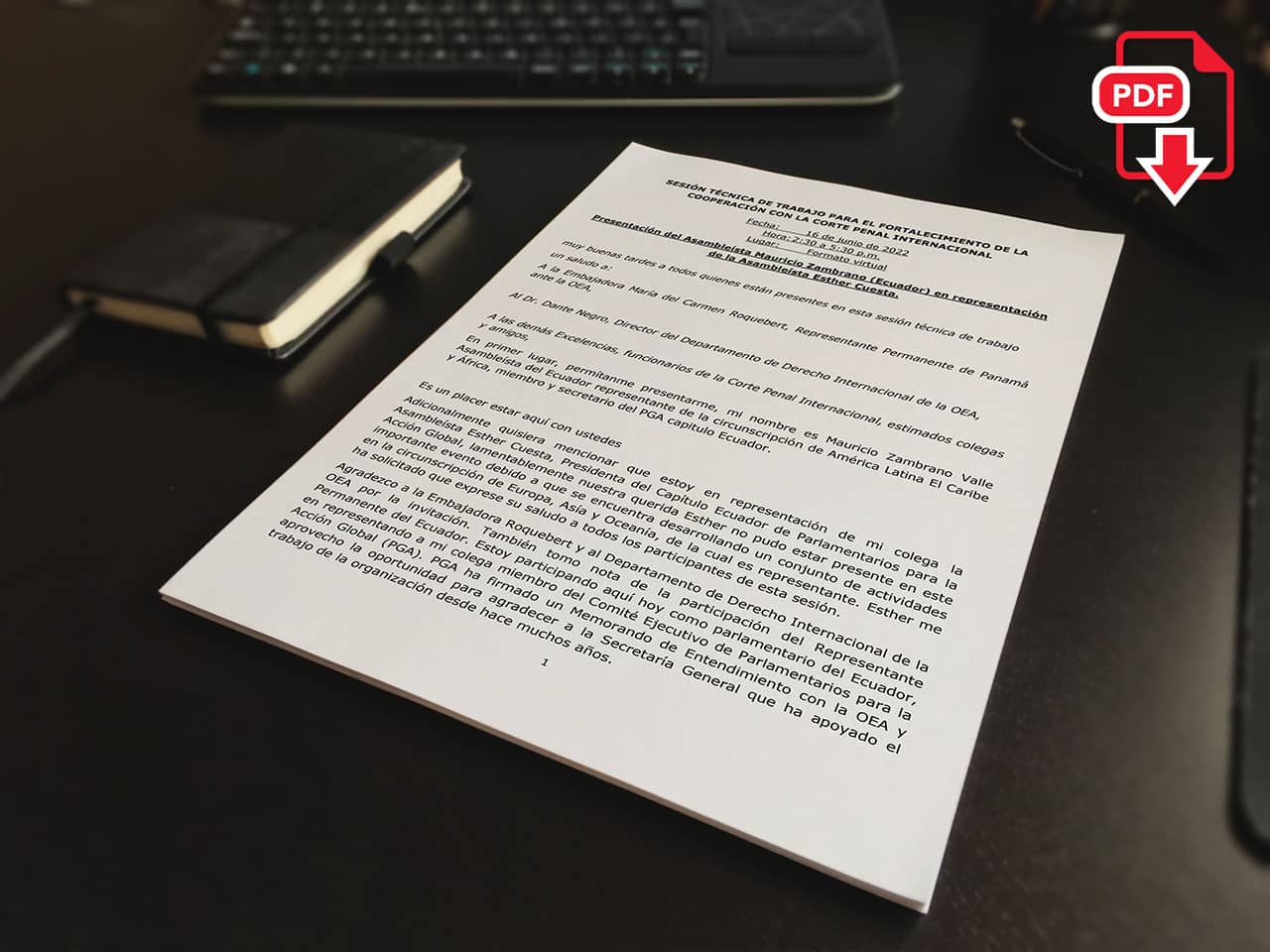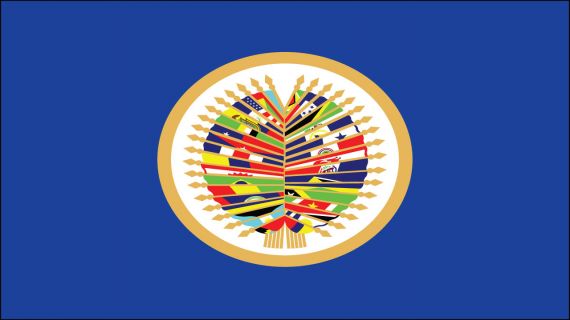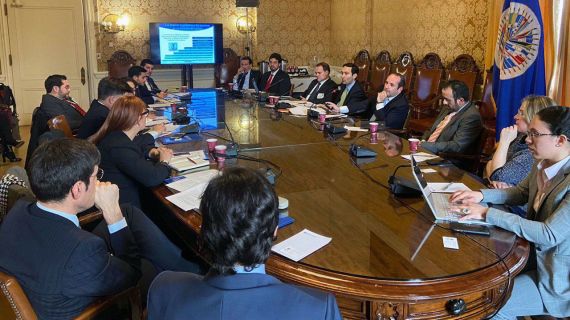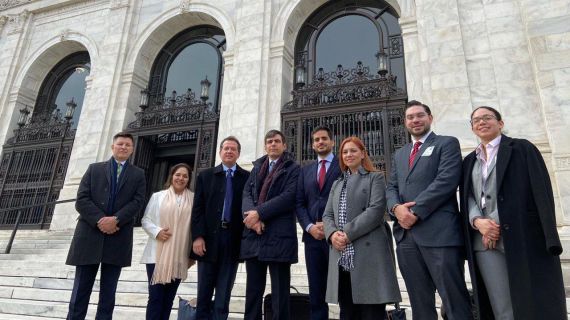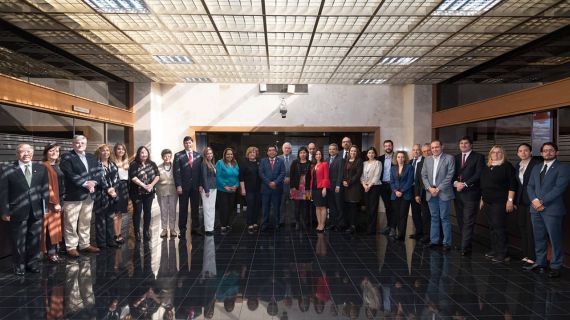Washington, D.C. / Quito
On 16 June 2022, the Committee on Juridical and Political Affairs of the Organization of American States (OAS) held its Technical Working Meeting to strengthen cooperation with the International Criminal Court (ICC). During the event that takes place every two years, OAS representatives, State delegations, ICC representatives – including Dr. Piotr Hofmański, President of the ICC – and civil society organizations exchanged views on effectively supporting the Rome Statute system. Asambleísta Mauricio Zambrano, legislator from Ecuador, represented Parliamentarians for Global Action (PGA) in the meeting to share thoughts on the universality of the Rome Statute in Latin America and update the distinguished audience on domestic efforts to implement the Rome Statute of the ICC.
In his presentation, Asambleísta Zambrano explained that the discussions on cooperation with the ICC, informed by the recommendations of the Independent Experts Review (IER), were timely, ahead of the 20th anniversary of the entry into force of the Rome Statute. The Ecuadorian legislator reminded the audience that all South American States have already ratified the Rome Statute, while only a few Central American and Caribbean States have not; some reluctance stemming from a lack of priority or misconceptions about the ICC. However, if the ICC is to fulfill its mandate, the universality of the Rome Statute is paramount, and States have a crucial role in this process.
Asambleísta Zambrano’s presentation also addressed the issue of improving the quality, professionalism, and independence of ICC judges. States Parties to the Rome Statute should ensure a fair, public, transparent, merit-based national nomination process of candidates for ICC judicial positions. This is all the more important given that in 2023 there will be a judicial election at the ICC. Indeed, the IER recommended States Parties to reform the national processes of judicial nomination, which could also be achieved through a harmonization of the nomination procedures: PGA fully supports the IER’s recommendations in this crucial area to enhance the ICC productivity. However, Asambleísta Zambrano concluded that if States would continue to proceed with the appointment of ICC judicial candidates based on political considerations, they should not criticize the Court for having inadequate quantitative or qualitative judicial outputs.
The Ecuadorian lawmaker stressed that the cooperation of States with the ICC is one of the essential pillars of the Rome Statute system. He announced that the PGA National Group in Ecuador is working on a draft law on cooperation with the ICC, which aims to incorporate in the national legal system all the forms of cooperation included in part nine of the Rome Statute. The Ecuadorian parliamentarian seized the occasion to express that it would be an honor to count on the participation of the ICC Prosecutor, Mr. Karim Khan, and OAS Representatives at PGA’s 12th session of the Consultative Assembly of Parliamentarians on the ICC and the Rule of Law, to be held in Buenos Aires in November 2022. This event is organized by PGA in cooperation with the Chamber of Deputies of Argentina.
During the remarks by States delegations, Ambassador Robert Rae, Permanent Representative of Canada to the United Nations and Vice President of the Assembly of States Parties (ASP) to the Rome Statute, renewed his call for the universality of the Rome Statute in the Americas. Currently, 29 out of 35 States are parties to the Rome Statute. States cannot function without rules, order, and justice, and if we are to create more accountability, we need every State to participate in such efforts.
Ambassador Beth Van Schaack, sixth Ambassador-at-Large for Global Criminal Justice at the U.S. State Department, expressed the historic commitment of her country to international justice, which is an essential priority of the Biden/Harris administration. This includes renewed cooperation with the ASP and the ICC and specific assistance to countries in need where it is necessary to support victims and affected communities. Ambassador Van Schaack reminded the audience that this hemisphere had pioneered jurisprudence on justice, truth, and reparations, making specific references to the Inter-American human rights system.
State representatives of some countries, including Argentina, reiterated that the principles of independence, complementarity, and cooperation were fundamental to the Rome Statute system and informed the advancement of key legislation in the region. The State representative of Chile informed that a draft cooperation law with the ICC is currently pending in the Foreign Affairs Committee in the Chamber of Deputies.
Although this OAS Technical Working Meeting traditionally occurs every two years, as it could not take place in 2020 due to the Covid-19 pandemic, on 3 June 2021, the Committee on Juridical and Political Affairs of the Organization of American States (OAS) held the previous session, during which PGA was represented by its former Board member Dip. Tucapel Jiménez.
PGA will continue to work closely with the OAS on international justice. In February 2020, the OAS and PGA signed a Memorandum of Understanding to enhance cooperation between the two organizations on common thematic priorities.





